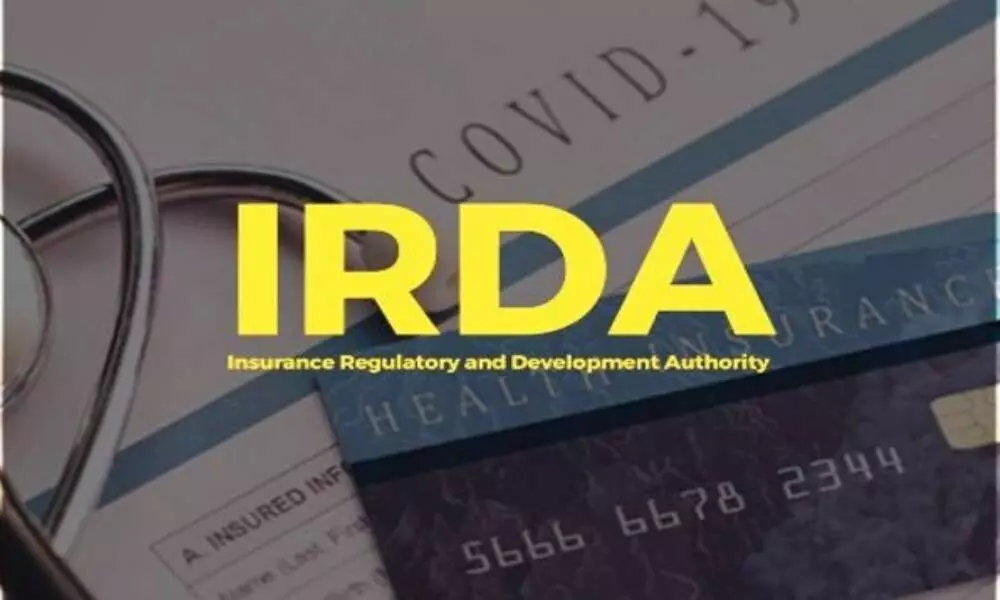Curious case of IRDAI allowing share premium as equity capital
Did the Indian insurance regulator consider share premium as part of paid-up capital and issued the licence to operate to a private reinsurer?
image for illustrative purpose

Chennai, Dec 21 Did the Indian insurance regulator consider share premium as part of paid-up capital and issued the licence to operate to a private reinsurer?
It seems so, as per the recent answers given by the Insurance Regulatory and Development Authority of India (IRDAI) to a series of questions raised under the Right to Information (RTI) Act about ITI Reinsurance Limited (ITI RE) and also as per its Annual Reports.
For starters, the minimum capital required for a private reinsurance company is Rs 200 crore.
However, IRDAI had asked ITI RE to bring in an additional capital of Rs 300 crore - Rs 100 crore before granting of licence to operate and another Rs 200 crore within three months of granting of the licence or March 31, 2017 whichever is earlier.
The ITI Re was given licence to transact reinsurance business -- general, life and health -- on December 30, 2016.
As per the IRDAI's annual reports for FY17, FY18 and FY19 the equity share capital of ITI Re was only Rs 268.94 crore.
However, to a question raised under the RTI Act, the IRDAI had sent a certificate given by an accounting firm whereby ITI RE had brought in equity share capital of Rs 205 crore and Rs 102.50 crore towards securities premium account.
"By no stretch of imagination that the share premium amount be taken into account as part of the minimum paid up capital requirement of an insurance or reinsurance company either under the Insurance Act or the Companies Act," D. Varadarajan, a Supreme Court lawyer specialising in Insurance and Corporate Laws and a Member on KPN Committee on Insurance Laws Reforms.
The term paid up capital cannot be allowed to subsume the amount standing in the share premium account, he said.
"Hence, both are distinct and separate and not be construed as mutually inclusive. Both under the IRDAI Regulations on preparation of financial statements and Companies Act, paid-up share capital falls under the head share capital, whereas share premium would fall under the head reserves and surplus. Further, the statute also makes provisions in regard to utilisation of share premium amounts for specific purposes only," Varadarajan explained.
According to him, rudimentary knowledge of law, regulations and settled accounting principles cannot fathom treatment of share premium amount as paid up capital for determining the threshold limit of capital requirement of an insurance or reinsurance company.
"It is Utopian or self-serving interpretation to accord 'pari materia' treatment in the teeth of extant statutory and regulatory dispensation," he remarked.
Be that as it may, the IRDAI for another RTI query had annexed a letter written by ITI RE, wherein the reinsurer on March 31, 2017 had said it had infused an additional capital of Rs 200.05 crore thereby taking the total equity capital to Rs 407.65 crore and a subordinated debt of Rs 100 crore and the total capital to Rs 507.65 crore.
Curiously, the IRDAI's annual reports for FY17 -FY19 clearly states the equity share capital of ITI RE was only Rs 268.94 crore.
The IRDAI declined to answer the RTI query on the compelling reasons for considering ITI RE's licence application with the company bringing in about Rs 300 crore as capital than the requested Rs 500 crore.
The Insurance Regulator said it has no information on allowing any insurer to bring initial equity shares at a premium, thereby circumventing the provisions of Section 6A(1) of the Insurance Act.
The IRDAI also said it does not have any information whether any committee of its officers was formed to process the R2 application of ITI RE.
To the RTI query on the statutory returns for reinsurers for the years 2017, 2018 and till April 2019, the IRDAI sought an exemption from providing the same.
The Insurance Regulator also said it does not have information about the CEO and key managerial persons of ITI RE for the years 2017 and 2018.
The ITI RE did not transact any business since it was given the licence in 2016. The company's board decided to surrender the licence to IRDAI in 2019 and the latter cancelled the same.
Incidentally the first Chairman of IRDAI N.Rangachary had recently said it is time to do a review of IRDAI.
"It is time to do a review of IRDAI. It is more than two decades since IRDAI came into existence. As a matter of fact, every regulatory organisation should be reviewed at regular intervals," told Rangachary
It was Rangachary who had paved the regulatory path for the sector as the first head of IRDAI.
"There should be a review committee to go into all regulatory aspects. It is time to see whether the original goal of forming the regulatory body has been fulfilled and if not, the action to be taken," Rangachary suggested.

